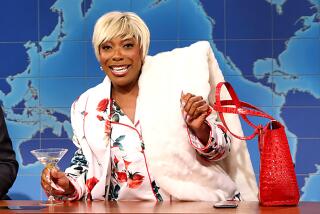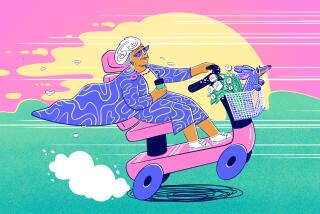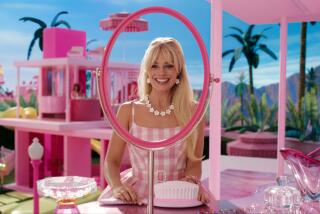The Art of Aunthood
- Share via
So you are, or are going to be, an aunt (awnt? ant?).
However you pronounce it, “aunting” well requires inspiration, perspiration and psychology, says Annette Sara Cunningham, an aunt times 25--not counting honoraries--and author of “Aunts: A Celebration of Those Special Women in Our Lives” (Contemporary Books, $11.95).
“Unexamined Aunthood is not worth living,” says Cunningham, an ex-nun who’s now CEO of a Manhattan-based public relations firm.
* First, being a world-class aunt means being there--sitting on hard benches at your nieces’ and/or nephews’ school games and “applauding at your 10th performance of ‘Our Town’ as if you had never seen it before.”
* In all matters, it is wise to remember that “no child of 4 to 10 wants to be eccentric or to have an aunt who is. (Being wildly eccentric is another matter.)”
* Aunts need “be aware that a great many images of aunts come from 19th century literature.” To avoid relic status, “Don’t be seen in that 10-year-old car with 35,000 miles on it. . . . Don’t smell of anything named Lavender. . . . Avoid all slang words, as they tend to become dated in a week.”
* Many an aunt will have “some perilous moments” until the nieces and/or nephews she has agreed to raise in case anything happens to their parents reach 21. Cunningham’s advice: Don’t let Mom and Dad go anywhere together, even to the market.
* What an aunt should never, ever say: “My, what a big girl/boy you’re getting to be!”
* What an aunt never wants to hear: “I’m moving to your town . . . but I haven’t been able to find an apartment.”
* Finally, there is the aunt as auntcestor, keeper of family lore.
“History is a fragile thing,” Cunningham observes. “That’s why museums have curators. And one of the reasons why families have aunts.”
More to Read
The biggest entertainment stories
Get our big stories about Hollywood, film, television, music, arts, culture and more right in your inbox as soon as they publish.
You may occasionally receive promotional content from the Los Angeles Times.










